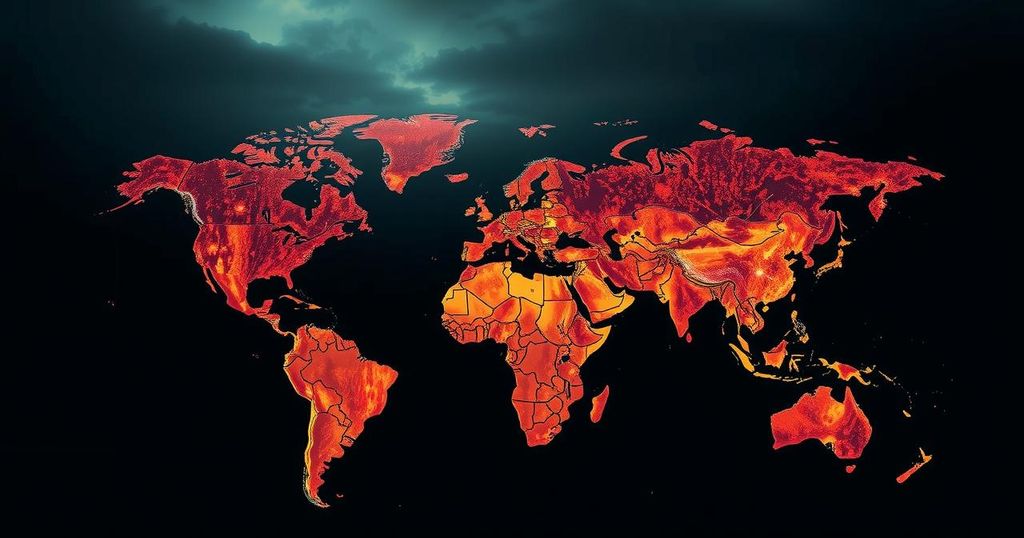Dominance of White-Wing Politics in the U.S. Elections: Implications for Global Stability
The U.S. presidential election on November 5 is garnering significant attention as candidates Kamala Harris and Donald Trump represent divergent yet similarly extremist white-wing ideologies. Their stances on foreign policy, particularly regarding Israel and immigration, raise concerns about a potential escalation in xenophobia and environmental issues. Notably, both candidates reject international norms and laws, leading analysts to fear the global repercussions of their potential election.
As the impending U.S. presidential elections draw near, many observers are questioning the significance of this highly publicized political event. The election, taking place in a nation that is the wealthiest, most populous, and most influential within the Caucasian bloc, will undoubtedly have far-reaching implications. With over 160 million Americans registered to vote, the potential outcomes of this election are being scrutinized by political regimes across North America and Europe, as they anticipate shifts in public opinion driven by the results. The two leading candidates—Vice President Kamala Harris, representing the ruling Democratic Party, and former President Donald Trump, affiliated with the far-right Christianist opposition—appear to embody contrasting perspectives. However, both candidates have expressed extremist views concerning U.S. support for military actions in Gaza and Lebanon where, under the guise of proxy operations, the U.S. supports Israel’s ongoing campaign of violence. Harris has called for an end to the current military engagements, yet her advisors have indicated that her stance is largely performative, reaffirming her commitment to continued arms supplies to Israel despite its recognized involvement in war crimes. In contrast, Trump’s faction remains firmly opposed to any limitations on military support for Israel, subscribing to apocalyptic beliefs that frame the conflict through a lens of impending doomsday scenarios. Furthermore, both candidates exhibit a disregard for global legal consensus regarding the occupation of Palestinian territories and reject key findings from various international human rights organizations and the United Nations that classify Israel’s actions as apartheid. This aligns with a broader historical context of the U.S. rooted in xenophobia and exclusion, notably amidst its grim history involving the genocide of Indigenous peoples and the enslavement of Africans. Both candidates seek to fortify domestic immigration policies, highlighting an inconsistency in America’s self-identification as a “nation of immigrants.” Internationally, the election poses additional concerns; neither candidate shows an inclination to engage with critical global treaties aimed at conflict resolution or environmental protection, such as the Rome Statute or various arms control agreements. Though there exists a worldwide push to mitigate climate change, the candidates instead vie to bolster the fossil fuel sector, promoting fracking practices that are widely criticized for their environmental impact. Regardless of the election’s outcome, there are considerable fears surrounding the expansion of far-right ideologies and environmental neglect, potentially reigniting regional conflicts reminiscent of the mid-20th century. Such shifts would compel global stakeholders to intervene and address the ramifications of U.S. policies.
The context of the U.S. presidential elections is set against a backdrop of extreme political polarization. The significance of these elections is amplified by the candidates’ extreme positions on international relations, particularly in relation to military support for Israel and the issue of immigration. Both candidates represent factions that uphold longstanding traditions of xenophobia and neglect toward international laws and obligations, raising alarms about the future trajectory of U.S. foreign and domestic policy.
In conclusion, the upcoming U.S. presidential election not only embodies a crucial moment for American democracy but also poses significant challenges for global relations. With candidates largely dismissive of international norms and human rights, their election could lead to further entrenchment of extremist politics and environmental disregard. The outcomes of November’s election will likely shape policy directions that resonate far beyond U.S. borders, prompting a need for vigilant monitoring by international observers.
Original Source: www.aljazeera.com




Post Comment